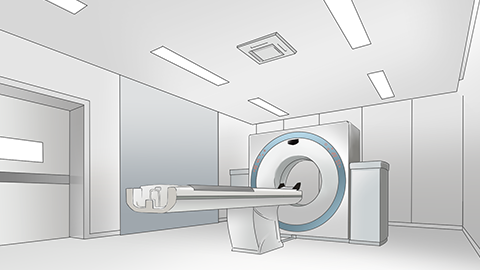Can a pituitary enhancement scan be performed during pregnancy?
Enhanced pituitary examination refers to dynamic contrast-enhanced magnetic resonance imaging (MRI) of the pituitary gland. Under normal circumstances, pregnant women can undergo dynamic contrast-enhanced pituitary MRI if necessary. However, consultation with a physician is recommended. Detailed explanations are as follows:

Dynamic contrast-enhanced pituitary MRI is a diagnostic imaging technique that uses magnetic fields to generate images of the inside of the human body. This method does not produce ionizing radiation, making it relatively safe for both the pregnant woman and the fetus. Unlike X-ray or CT scans, which involve ionizing radiation that poses a risk of damaging cellular DNA and potentially causing developmental abnormalities in the fetus, dynamic contrast-enhanced MRI avoids this critical risk, protecting the fetus from adverse radiation effects.
Moreover, dynamic contrast-enhanced pituitary MRI plays an important role in diagnosing certain conditions. For example, if a pregnant woman experiences elevated prolactin levels, this may indicate the presence of a pituitary tumor. In such cases, undergoing dynamic contrast-enhanced pituitary MRI can help confirm the presence of a tumor, allowing for appropriate treatment. Additionally, for pregnant women who already have a pituitary tumor, close monitoring of pituitary-related hormones during pregnancy is necessary, and non-contrast plus contrast-enhanced pituitary MRI may be performed when necessary to ensure the health of both mother and baby.
Pregnant women should also maintain healthy lifestyle and dietary habits in daily life and undergo regular prenatal check-ups to ensure maternal and fetal well-being.





